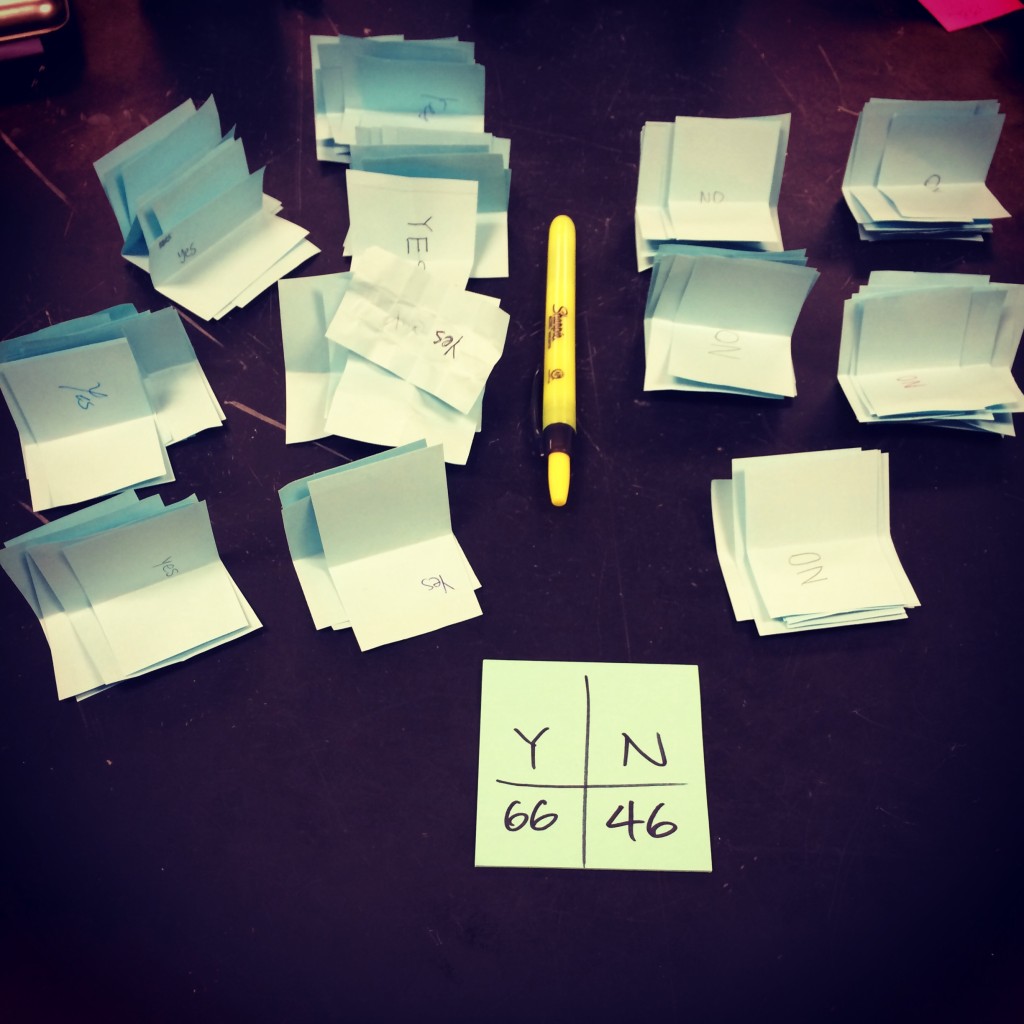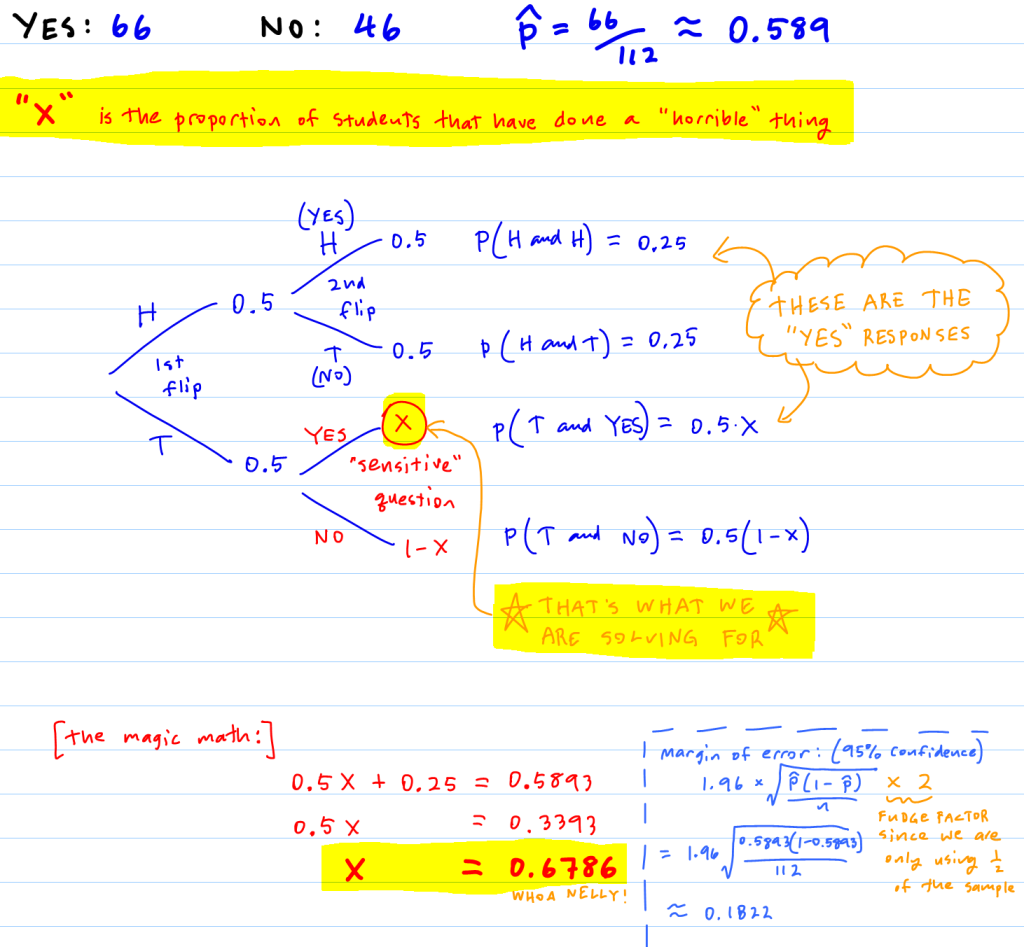On Monday/Tuesday of this past week, we had our last regular major exam in AP Statistics.1 It was on the very next day of class that I pulled the following activity with them.
Every now and then, statisticians need to ask questions of a sensitive nature — questions that people may be too embarrassed to answer honestly under normal circumstances — such as:
- Have you ever cheated on your spouse?
- Have you ever been under the influence of alcohol or illegal drugs while at school/work?
- Do you like to kill kittens? (what?!?)
- (for teenagers:) Have you been to a party where alcohol was being served?2
Well, you get the idea — the list of potentially fascinating questions is endless.
So how do we get honest responses to questions like these?
Here are the steps:3
- Have every student find a quarter and flip it twice.
- Tell them to remember what they flipped and in what order, but do not tell ANYBODY what they flipped (otherwise, scrap their flips and do it again)
I then give every student a slip of paper on which they write “yes” or “no”, based on the following instructions:
If your FIRST coin flip landed “HEADS”, then answer the following question:
HOWEVER, if your FIRST coin flip landed “TAILS”, then answer the “sensitive” question du jour. The one that I investigated with my students is:
(Muahahahahaha)
Of course, nobody knows which question you are answering. And that’s the point. This provides a psychological veil of secrecy which allows the subjects to answer the question honestly.
Here is the final tally for my AP Statistics classes this year:

What we do then is use some statistical-voodoo-magic5 to arrive at an estimate6 for the true proportion of students who have done “a horrible thing”.
For this group, that estimate would be 67.9% with a margin-of-error of plus-or-minus 18.2%.7
If you’re shocked, don’t be. That’s pretty much the estimate we get every year.8
Here’s the work, if you’re curious:

This moment in class is, of course, followed up with the “just because we are discussing cheating does not mean cheating is acceptable” conversation.
But regardless, it’s all great fodder for discussion.
The PTSA9 sells donuts and coffee in the main mall before school, and this past Friday I went by to pick up a cup of coffee. As the PTSA mom that was there poured my coffee, she asked me,
So, how many more Fridays are there in the school year?
I couldn’t remember… and for some reason, I almost felt embarrassed that I had to stop and think about it. She laughed and said,
I thought you teachers were counting this down!10
So here it is:
One full month and change until the AP Exam.
Eight weeks until FREEDOM Summer vacay. 11
- The rest of the year is spent reviewing for the big exam on May 9. [↩]
- Yes, I will concede that there are much edgier things you could ask teenagers… [↩]
- and this is just ONE methodology, I am sure there are others [↩]
- It is worth noting that we consider discussing quiz/test questions with students outside of class before everyone has taken the exam to be a form of cheating. It is also worth noting that I force my students to sign an honor statement on the first exam of the school year. [↩]
- probability and algebra with tree diagrams, since you expect roughly half of the participants to answer the first question, and half to answer the second [↩]
- plus-or-minus a margin of error [↩]
- Based on a 95% confidence level. Yes, that’s a huge margin-of-error, but it is limited by the fact that we can only use about half of the sample [↩]
- Again, keep in mind that our definition of “cheating” includes discussing what was on the test with students in other class periods who may not have taken the test yet. [↩]
- at least I think it’s the PTSA…? [↩]
- Well, we ARE. But it was just a rough week… I’m still reeling from our Superintendent asking me if I was a student… [↩]
- Not that anyone is counting =) [↩]